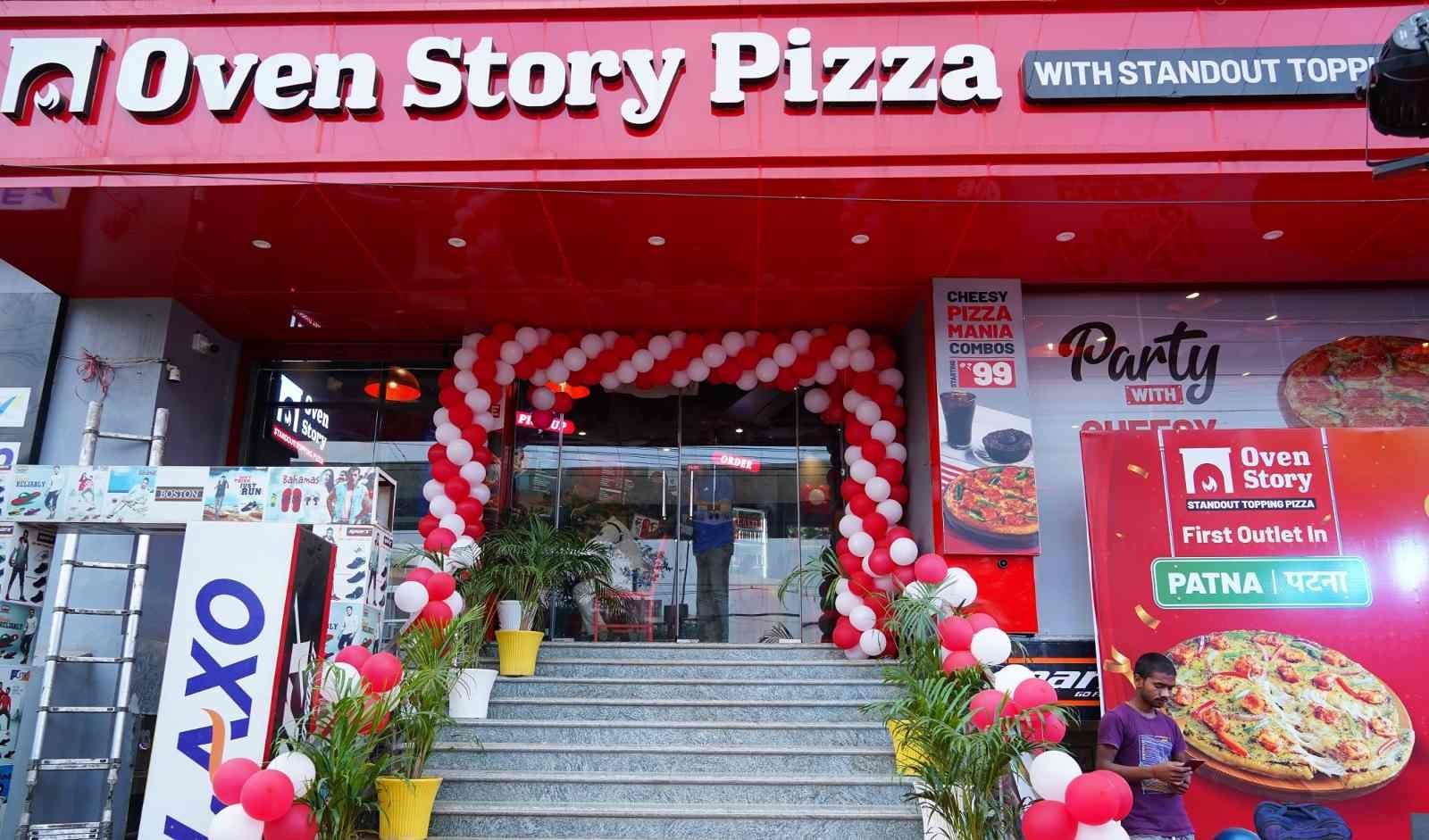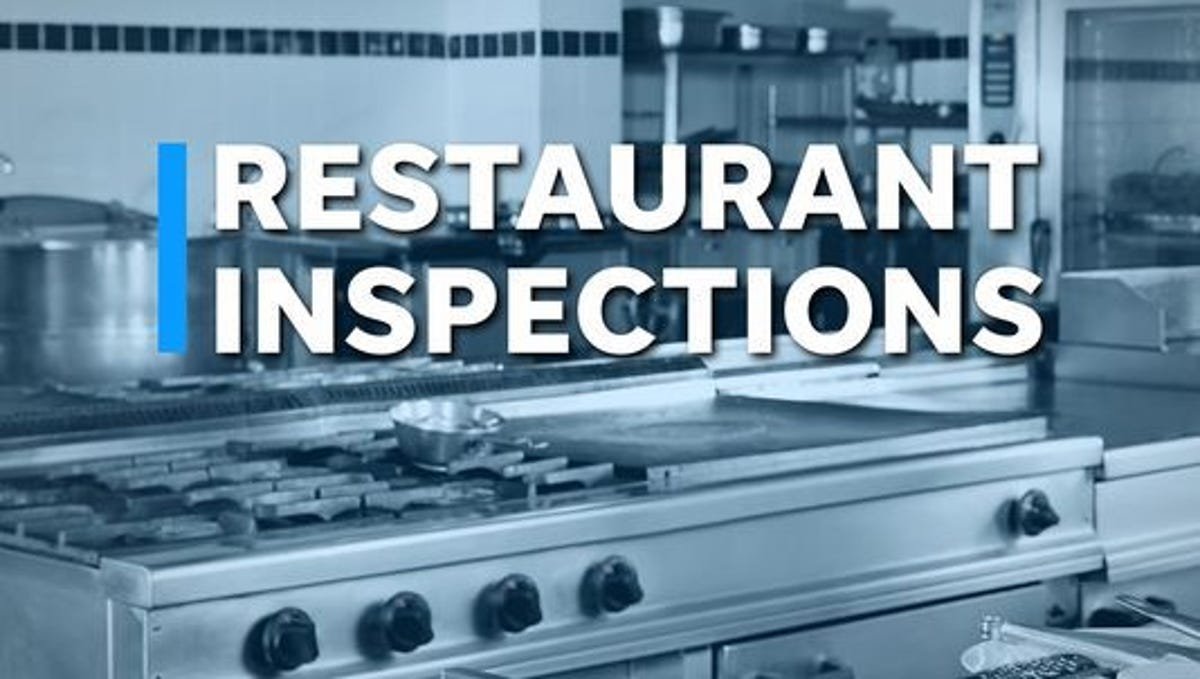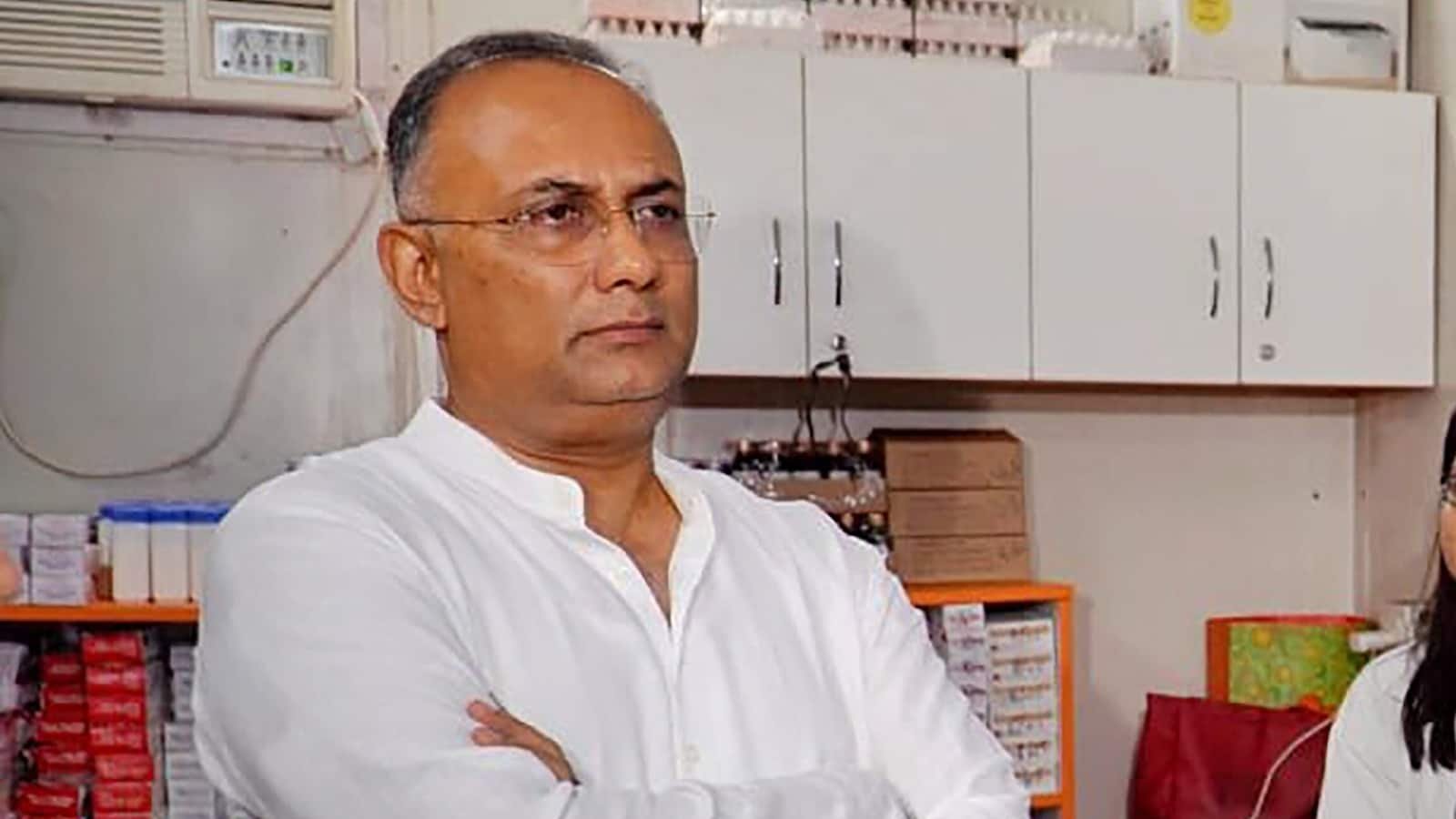Restaurants & Food
Why Restaurants are Ditching Big Cities for Small Towns

Back in 2017, food trucks were a big trend in India. Customers who were looking for varied flavours and options found food trucks to be an uncommon and interesting concept of serving food. Their love for street food rekindled with this format, which is why food trucks were being preferred to dine-in ambiences. The cheap and cost-effective solution to starting a restaurant generated a lot of revenue for the industry.
Opening a food truck is much cheaper than opening a restaurant, and therefore a much more tangible goal for those wishing to serve their community. With a comparably low initial investment, people can see their financial freedom just a few years down the road. Once they break even and pay off any loans, as long as their food truck continues to make a profit, they will have gained financial freedom doing what they love. This is one of the major reasons why people enter this domain.
However, after a phase of prolonged growth, food trucks, just like the other restaurant formats, had to bear the brunt of Covid-19. There was a sharp decline in the restaurant industry in Q2 of 2020. Today, even though the dine-in restaurants and QSR chains have restarted reopening, the future of food trucks is still to be thought about. Many unfortunately have closed their services forever.
The question that now stands is, are food trucks still a viable option after the struggling restaurant industry in India. It is pretty obvious what impact Covid-19 has had on the food trucks in India. Since it’s a business that literally operates on the road, it became all the more unsafe and unhygienic for the customers to visit the food trucks and enjoy their meals in crowds.
With a nationwide lockdown to contain the virus, the streets went empty. People on their way to offices and colleges were no longer there to grab a quick bite off the food trucks. There was no chance of any food or music festivals happening either. All the events or sites where food trucks could make their sales were put on hold or had negligible footfall. The vehicles thus stayed empty and stationary.
Challenges that existed before pandemic
For the food truck business to flourish, some challenges always existed. One can control the food quality and the business plan but can’t control the weather. And in India weather is a huge challenge for the operators. To continue the flow, there should be a proper selection of a location in order to attract the right set of customers / most trafficked areas just at the right time. Thus location always imposed uncertainties.
Dealing with the local municipality and government officials is another challenge in this field and one should have all his/her contacts handy to upkeep the truck on road. Though licensing is not defined for food trucks in India, licenses like FDA license, NOC from traffic police, fire license for kitchen, police NOC, etc are required to be taken which is a tedious process. In India there is no association or regulatory body assigned by the government for establishing a food truck business. Licensing for food trucks in India is highly unorganised and is the most time consuming and burdensome task.
Sagar, Owner of Amigo Food Trucks said, “The food truck business has a huge potential which will be unlocked only when the government comes out with some regulations. This business is much unorganised and the owners of the business face a lot of challenges, due to lack of any regulation, even the municipal corporations and police of cities have no authority to formulate any rules or guidelines.”
Lastly, parking space is a major issue and there is no clarity on rules and regulations pertaining to food truck parking. The food truck owners feel that no designated parking space often affects their business.
Is different from running a restaurant
“We are approaching our three year anniversary in March, in my opinion, I believe that many people that decide to get in the food truck business do not appreciate the amount of work involved, which is the number one reason why they fail. They are not prepared to work so hard, therefore, throwing in the towel within the first year. It is very different from running a restaurant,” Karan Marwar, Owner of a Food Truck in Dehradun stated.
In a restaurant, there are staff for all the different positions required to run the business along with the fact that it is open in the am and close in the pm. With a food truck, the owner may be the Chef, prep cook, line cook, dishwasher, cleaning crew, etc. “If you are running a lunch service along with a dinner service, the truck has to be turned over for each service and then travel to each venue. As you can see it is double if not triple the work,” Marwar added.
However, food trucks fail for the same reasons as restaurants. Owners often lack operating capital, a true understanding of cash flow versus profit and lack an executable plan. And the low barrier of entry attracts a high number of operators that may not be prepared for small business ownership.
Mechanical Failures
“We run expensive businesses. The cost of gas, propane, storage, commercial kitchen rental, employee, not to mention food costs. There are a lot of expenses running a food truck. One expense often gone unnoticed or accounted for is maintenance on your vehicle. Trucks breaks down! Equipment breaks down! Lots of the food truck owners are buying old trucks, they put a new wrap on it and then hit the road. Then a transmission blows, the gas leaks, the radiator breaks, the list can go on and on. Before you know it you have spent thousands of additional dollars that you did not budget for. You have a new truck and have a hard time making ends meet regardless. The cost is too great, and you go under,” Deepika Rao of The Food Truck Company in Pondicherry added.
The food trucks are customised commercial vehicles which come in different sizes. The cost of a vehicle depends on numerous factors. Entrepreneurs often opt for pre-owned vehicles. The cost of customising a truck lies between INR 1 lakh to INR 5 lakh depending on the type of vehicle.
Is there hope?
Even though the impact of Covid-19 has weakened the food truck market, there is still hope left for the same. The convenience that lured customers to visit food trucks means that they are still relevant in the post-pandemic era. However, some extra efforts need to be put in by the food truck owners to attract customers once again.
Food delivery services and takeaways have saved the restaurant industry from draining out. They seem to be the only practical solution for every restaurant format to keep the cash coming in. Many food trucks like the Bombay Food Truck have turned to deliveries looking at the number of customers craving for the food and experience that they offer.
Not just this, many food truck owners have started providing meal kits to keep their business afloat during the crisis by creating a new revenue stream. One can also drive the food truck to small community gatherings and make sales there via catering.
Tapping on the flexibility factor
From the business perspective, food trucks seem to be more survivable than dine-in restaurants, given their operational attributes. The flexibility and freedom to drive the food truck around the city help to attract more customers and visit more places. Unlike dine-in restaurants, where it is impossible to change locations, food trucks can explore more places and gather more customers.
However, if one is looking to open a food truck business amidst the pandemic, one needs to be wary of customer safety. Following social distancing norms should not be forgotten while serving a throng of customers. Food trucks lack dining spaces and ambiences and this bodes well for them. Social distancing can be followed more efficiently in open spaces than a queue limited to the back wall of the restaurant. The absence of dining spaces minimizes the touchpoints responsible for the spread of the virus. Customers can either take away their orders or eat them in their own space, like a car, without having to worry about getting infected by the virus.
Can low overhead costs attract more investors?
One of the chief aims of restaurateurs, amidst the pandemic, is to save their capital and utilize it in the best possible way. No format is as cost-efficient as food trucks, which is why they have high hopes of surviving the pandemic and a great potential for the future.
A food truck business consists of just two staff members, one truck, inventory and one delivery personnel if required. There is no dining space which further cuts the labour and maintenance cost of the ambience. Moreover, a one-time investment in an appropriate truck eliminates the monthly rental costs too.
Even though one might think that, out of all restaurant formats, food trucks might suffer the most losses due to Covid-19 as they are out there on the street, this might not actually be true. The way they operate, in fact, keeps them on the safer side in both safety and financial aspects, thereby making them more viable than other restaurant formats.
In India, food trucks stand a chance because people want good food at reasonable prices available near to them especially in these times when Covid-19 has shaken the economy and business of big and small restaurants. Also, with more people coming into this business scope of finding regional dishes on food trucks is high, giving yet again another area to introspect.
Restaurants & Food
Vero Beach area restaurant and food truck inspections July 28-Aug. 3

What Do Restaurant Inspectors Look For?
Each inspection report is a “snapshot” of conditions present at the restaurant at the time of the inspection.
Ginny Beagan, Wochit
You can use the database to search by county or by restaurant name.
Florida’s restaurant owners are not required to post restaurant inspection results where guests can see them. So every week, we provide that information for you.
For a complete list of local restaurant inspections, including violations not requiring warnings or administrative action, visit our Indian River County restaurant inspections site.
Here’s the breakdown for recent health inspections in Indian River County, Florida, for the week of July 28-Aug. 3, 2025. Please note that some more recent, follow-up inspections may not be included here.
Disclaimer: The Florida Department of Business & Professional Regulation describes an inspection report as a ‘snapshot’ of conditions present at the time of the inspection. On any given day, an establishment may have fewer or more violations than noted in their most recent inspection. An inspection conducted on any given day may not be representative of the overall, long-term conditions at the establishment.
For full restaurant inspection details, visit our Indian River County restaurant inspection site.
Which Indian River County restaurants had high priority violations?
5135 20th St., Unit 108, Vero Beach
Routine Inspection on July 31
Follow-Up Inspection Required: Violations require further review, but are not an immediate threat to the public.
11 total violations, with 4 high-priority violations
- High Priority – Employee began working with food, handling clean equipment or utensils, or touching unwrapped single-service items without first washing hands. Employee began working with wontons without washing hands. Educated manager **Corrective Action Taken** **Warning**
- High Priority – Live, small flying insects found 3 live flies in kitchen **Warning**
- High Priority – Raw animal food stored over/not properly separated from ready-to-eat food. -raw chicken over veggies in cook line cooler – boxes of raw chicken stored next to raw cabbage in tall cooler. Advised employee to separate **Corrective Action Taken** **Warning**
- High Priority – Time/temperature control for safety food cold held at greater than 41 degrees Fahrenheit. Raw chicken 61f. Cold holding. Tofu 51f cold holding. ; In reach in cooler. Door was not fully shut. Advised to rapid chill cooked noodles (73F); cut cabbage (89F) sitting out on counter. Employee states it was sitting out for 45 minutes. Employee moved to freezer to rapid chill **Corrective Action Taken** **Warning**
3450 Ocean Drive, Vero Beach
Complaint Inspection on July 29
Follow-Up Inspection Required: Violations require further review, but are not an immediate threat to the public.
7 total violations, with 3 high-priority violations
- High Priority – Time/temperature control for safety food cold held at greater than 41 degrees Fahrenheit. Small reach in-Rice 48f. Shrimp salad 48f. Cut tomatoes 49f. Hot dogs 48f all cold holding for 3 hours. Manager moved to rapid chill. Tall single door cooler- Tall stainless cooler- Cheese 47f cold holding. . ; shaved beef (51F – Cold Holding); salmon (44F – Cold Holding); burgers (44F – Cold Holding) Manager states they just had busy lunch. All items have been in coolers for 3 hours. Advised to rapid chill all items. Advised to have coolers checked for issues and temperature turned down on units Salad cooler- cut lettuce 51f. Ranch 48f. Blue cheese dressing 47f. Cold holding. Walk in cooler – coleslaw 46f. **Repeat Violation** **Admin Complaint**
- High Priority – Time/temperature control for safety food, other than whole meat roast, hot held at less than 135 degrees Fahrenheit. mushrooms (122F – Hot Holding); onions (122F – Hot Holding) in steam table for 1 hour-advised to reheat **Corrective Action Taken**
- High Priority – Toxic substance/chemical improperly stored. Bleach spray stored on rack with bread.Employee removed **Corrected On-Site**
3450 Ocean Drive, Vero Beach
Complaint Inspection on July 30
Follow-Up Inspection Required: Violations require further review, but are not an immediate threat to the public.
5 total violations, with 1 high-priority violation
- High Priority – – From initial inspection : High Priority – Time/temperature control for safety food, other than whole meat roast, hot held at less than 135 degrees Fahrenheit. mushrooms (122F – Hot Holding); onions (122F – Hot Holding) in steam table for 1 hour-advised to reheat **Corrective Action Taken** – From follow-up inspection 2025-07-30: **Time Extended**
725 S.W. 27th Ave., Suite C, Vero Beach
Routine Inspection on July 30
Follow-Up Inspection Required: Violations require further review, but are not an immediate threat to the public.
9 total violations, with 1 high-priority violation
- High Priority – Time/temperature control for safety food cold held at greater than 41 degrees Fahrenheit. Spinach sauce 46f. Operator states employee moved stuff around in cooler 1 hour ago. Item was moved to walk in to chill Pizza cooler- Chicken 48f. Tomatoes 52f. Cheese 48f. Ham 48f all cold holding for 1 hour **Corrective Action Taken** **Corrective Action Taken** **Warning**
1285 U.S. 1, Vero Beach
Routine Inspection on July 28
Follow-Up Inspection Required: Violations require further review, but are not an immediate threat to the public.
4 total violations, with 1 high-priority violation
- High Priority – Time/temperature control for safety food cold held at greater than 41 degrees Fahrenheit. Marinara sauce 51f. Meat sauce 71f. Cream sauce 49f. ; peas 53f all – Cold Holding 3.5hours. Employee added items to ice to rapid chill **Corrective Action Taken** **Warning**
2121 14th Ave., Vero Beach
Routine Inspection on July 30
Follow-Up Inspection Required: Violations require further review, but are not an immediate threat to the public.
3 total violations, with 1 high-priority violation
- High Priority – Time/temperature control for safety food cold held at greater than 41 degrees Fahrenheit. Blue cheese 44-47f. In service 1.5 hours; Advised to add more ice to ice bath. **Corrective Action Taken**
762 21st St., Vero Beach
Routine Inspection on July 29
Follow-Up Inspection Required: Violations require further review, but are not an immediate threat to the public.
12 total violations, with 3 high-priority violations
- High Priority – Dishmachine chlorine sanitizer not at proper minimum strength. Discontinue use of dishmachine for sanitizing and set up manual sanitization until dishmachine is repaired and sanitizing properly. Reading 0ppm. Operator had detergent hooked up instead of sanitizer. Swapped chemicals and primed. Reading 0ppm **Warning**
- High Priority – Live, small flying insects found 2 live flies in kitchen **Warning**
- High Priority – Stop Sale issued due to food not being in a wholesome, sound condition. Salmon thawed in ROP in walk in cooler states to remove prior to thawing
2855 Ocean Drive, Suite B1, Vero Beach
Routine Inspection on July 28
Follow-Up Inspection Required: Violations require further review, but are not an immediate threat to the public.
1 total violation, with 1 high-priority violation
- High Priority – – From initial inspection : High Priority – Dishmachine chlorine sanitizer not at proper minimum strength. Discontinue use of dishmachine for sanitizing and set up manual sanitization until dishmachine is repaired and sanitizing properly. Reading 0ppm at bar. Primed and ran three times. Still reading 0ppm **Repeat Violation** **Warning** – From follow-up inspection 2025-07-28: Eco lab is scheduled to come out this afternoon**Time Extended** **Time Extended**
709 U.S. 1, Sebastian
Routine Inspection on July 30
Follow-Up Inspection Required: Violations require further review, but are not an immediate threat to the public.
12 total violations, with 2 high-priority violations
- High Priority – Dented/rusted cans present. See stop sale. 1 dented can of oyster sauce
- High Priority – Time/temperature control for safety food cold held at greater than 41 degrees Fahrenheit. Raw pooled egg 52F recommend to rapid chill. Rechecked egg 41F **Corrected On-Site**
What agency inspects restaurants in Florida?
Routine regulation and inspection of restaurants is conducted by the Department of Business and Professional Regulation. The Department of Health is responsible for investigation and control of food-borne illness outbreaks associated with all food establishments.
How do I report a dirty restaurant in Florida?
If you see abuses of state standards, report them and the Department of Business and Professional Regulation will send inspectors. Call the Florida DBPR at 850-487-1395 or report a restaurant for health violations online.
Get the whole story at our restaurant inspection database.
What does all that terminology in Florida restaurant inspections mean?
Basic violations are those considered against best practices.
A warning is issued after an inspector documents violations that must be corrected by a certain date or within a specified number of days from receipt of the inspection report.
An administrative complaint is a form of legal action taken by the division. Insufficient compliance after a warning, a pattern of repeat violations or existence of serious conditions that warrant immediate action may result in the division initiating an administrative complaint against the establishment. Says the division website: “Correcting the violations is important, but penalties may still result from violations corrected after the warning time was over.”
An emergency order — when a restaurant is closed by the inspector — is based on an immediate threat to the public. Here, the Division of Hotels and Restaurants director has determined that the establishment must stop doing business and any division license is suspended to protect health, safety or welfare of the public.
A 24-hour call-back inspection will be performed after an emergency closure or suspension of license.
Restaurants & Food
Owners of Anokha Indian restaurant in Short Pump open new spot in Chesterfield

The owners of a longtime Short Pump-area Indian restaurant have branched into Chesterfield.
Last month Jassi Singh and Charanjeet Ghotra opened Rutba Indian Kitchen at 13822 Village Place Drive in the Midlothian Village Square shopping center.
Rutba is Singh and Ghotra’s second local restaurant, joining Anokha Unique Cuisine of India, which they opened near Short Pump Town Center in 2008. The duo also own two restaurants in Charlottesville, Milan Indian Restaurant and Kanak Indian Kitchen.
Ghotra said Rutba’s menu is similar to Kanak’s with classics like butter chicken, samosas and grilled kebabs, along with Chukundari kofta, which is a vegetarian take on meatballs with beetroots, and the Paneer Bhatura, a type of bread that’s stuffed with Indian cheese and spices.
“We have a lot of dishes that we had created (at Kanak) that are very popular there, and people here like them as well,” Ghotra said.
Entrees at Rutba range from around $17 to $25, and it also offers a variety of Indian beers and wines, as well as a full cocktail menu.
Rutba restaurant debuted in mid-July and is open seven days a week for lunch and dinner.
Last year Singh and Ghotra purchased Rutba’s 3,000-square-foot Village Place Drive building, which was formerly a Wendy’s, for $1.2 million, according to county records. They converted the space from a fast-food joint to a sit-down restaurant with the help of Fultz & Singh Architects.
Singh and Ghotra have been in the industry for decades, starting out in restaurants in New York and Virginia Beach in the 1990s. They’ve opened four restaurants over the course of over 20 years, first with Milan in Charlottesville in 2003, and prior to Rutba, their most recent opening was in early 2020 with Kanak.
Ghotra said he and Singh always make sure their restaurants are stable and successful before moving onto another.
“If you can’t handle it properly, then there’s no point in opening (a restaurant) then closing it, right?” he said.
Rutba and Midlothian Village Square are just a mile down the street from Winterfield Crossing, which just signed on Stella’s Grocery as its newest food tenant.
Restaurants & Food
Restaurants use unsafe colouring agent: Karnataka minister on quality food | Latest News India

Karnataka Health Minister Dinesh Gundu Rao on Monday appealed to people not to be “fooled” by attractive and colourful dishes, but to insist on safe and quality food.
He cited the recent testing of six samples belonging to the Empire Group of Restaurants, which turned out to be unsafe due to the use of banned synthetic colouring.
“Despite repeated warnings, the restaurant group continued to use the unsafe colouring agent. Only after legal notices were sent did the colour go from red to yellow,” the health minister told reporters during his weekly media briefing.
There was no response from the Empire Group of Restaurants.
According to the minister, better quality food and drugs can become the norm only if people insist on quality goods.
“Yes, the government needs to do its part and tackle this legally, but people too should cultivate quality conscious as culture,” he said.
The minister also said the health department held a video conference on July 30 with cooking oil manufacturers to insist that the trans-fat level should not exceed 2 per cent.
“We told them that if it exceeds 2 per cent, strong action will be taken against them,” he added.
Dinesh Gundu Rao said the oil manufacturers were also urged to sell used cooking oil (UCO) to manufacturers like Pyrene Industries, which converts UCO into biodiesel.
According to 2024-25 data, 28,73,124 litres of UCO were used to manufacture biodiesel and soap, he said.
“We want this figure to increase substantially so that UCO does not go back into the market for cooking purposes,” he added.
Rao said the Karnataka government has merged the enforcement division of Ayurveda, Siddha and Unani (ASU) medicines under the AYUSH Department, as well as the existing AYUSH drug testing laboratory in Bengaluru, with Drug Control Division of the Food Safety and Drug Administration Department for better functioning of the Health Department.
According to him, the government’s proposed app to control drug safety is expected to be functional by the end of this month.
“With this app, we can immediately withdraw defective drugs, as we can track at distributor level. So, we can put an immediate stop to further sale of that drug,” said the minister.
He said, once the app is in force, they will expand its scope. “Next will be to take it to the pharmacy level. We want to onboard every pharmacy on the app,” he added.
At present, the recall procedure takes two days, he said, citing the recent recall of nearly 40 lakh drugs in two days.
“This too, we had made a breakthrough with the help of a software. Earlier, it used to take nearly 30 days to recall batches of failed drugs from the market,” he added.
The minister also said work is progressing at expected pace in bringing the private ambulances and mobile medical units under the ambit of Karnataka Private Medical Establishments (KPME) Act. “We will be coming out with an amendment soon,” he added.
-

 Brand Stories2 weeks ago
Brand Stories2 weeks agoBloom Hotels: A Modern Vision of Hospitality Redefining Travel
-

 Brand Stories1 week ago
Brand Stories1 week agoCheQin.ai sets a new standard for hotel booking with its AI capabilities: empowering travellers to bargain, choose the best, and book with clarity.
-

 Destinations & Things To Do2 weeks ago
Destinations & Things To Do2 weeks agoUntouched Destinations: Stunning Hidden Gems You Must Visit
-

 Destinations & Things To Do1 week ago
Destinations & Things To Do1 week agoThis Hidden Beach in India Glows at Night-But Only in One Secret Season
-

 AI in Travel2 weeks ago
AI in Travel2 weeks agoAI Travel Revolution: Must-Have Guide to the Best Experience
-

 Brand Stories1 month ago
Brand Stories1 month agoVoice AI Startup ElevenLabs Plans to Add Hubs Around the World
-

 Brand Stories4 weeks ago
Brand Stories4 weeks agoHow Elon Musk’s rogue Grok chatbot became a cautionary AI tale
-

 Brand Stories2 weeks ago
Brand Stories2 weeks agoContactless Hospitality: Why Remote Management Technology Is Key to Seamless Guest Experiences
-

 Asia Travel Pulse1 month ago
Asia Travel Pulse1 month agoLooking For Adventure In Asia? Here Are 7 Epic Destinations You Need To Experience At Least Once – Zee News
-

 AI in Travel1 month ago
AI in Travel1 month ago‘Will AI take my job?’ A trip to a Beijing fortune-telling bar to see what lies ahead | China




